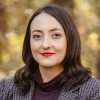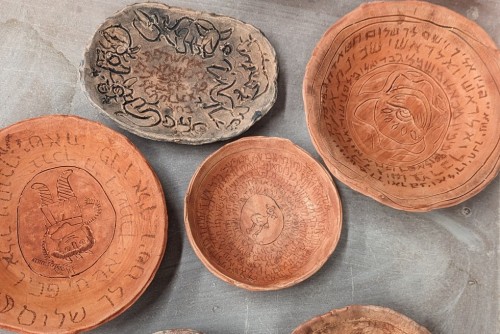Jewish studies at Kenyon are highly interdisciplinary, inviting students to explore historical and contemporary manifestations of Jewish civilization in diverse cultural contexts from the perspectives of many different modern academic disciplines. As a combination of fields, methods and disciplines, Jewish studies is thus quintessentially inclusive and comparative, transnational and international. Students of all backgrounds learn how to critically assess competing ideas and how to analyze intersecting identities within their social contexts, as well as tracing the ways Jewish traditions have informed major systems of thought and governance.
Featured Courses
Jew-ish in a Modern World
We examine the changes in Judaism and Jewish life wrought by the advent of modernity and the Jewish Enlightenment (the Haskalah). We discuss developments in modern Jewish thought and the ways Jewish movements (such as Reform, Conservative, Orthodox, Reconstructing and Renewal Judaism) interacted with the classical Jewish tradition. Throughout the semester, we ask: What makes someone a Jew? What are the relationships between power, tradition and non-Jewish culture that shape modern Jewish practice?
Jews of Christian Europe, 1000-1800
In this course we cover the history of the Jewish communities living in Christian Europe (broadly defined) from the decades before the first crusade to the end of the Enlightenment, exploring how European Jewish identity evolved and responded to events in Christian surroundings. We look closely at what Christians thought about Jews and Judaism, but we especially examine a wide range of Jewish sources attesting to their experiences, tribulations and successes.
Freud’s Vienna: Culture Politics and Art in the Fin de Siècle Habsburg Monarchy
We examine the explosion of creativity and radicalism in late Habsburg society, focusing on the capital city, Vienna, home to many of the most important creators of early 20th-century modern culture, including Freud, Otto Wagner, Karl Kraus, Gustav Mahler and others. We follow developments in the fields of psychology, medicine, literature, architecture, art and music, putting them into the context of important political and social movements.
Myth of Nation: German Film from Nosferatu to Hitler and Beyond
Taught in English translation, the course invites students to explore the role that films played in shaping and reflecting German national identity and cultural ideals from the early 20th century through the present. Students will view silent films like “Nosferatu” from the Weimer period, propaganda films like Kenyon “The Triumph of the Will,” from the Nazi period, and post-World War II films by members of the New German Cinema.
Study Abroad
Students interested in Jewish studies are encouraged to study abroad as an immersive opportunity to take in Jewish culture and history. While the Jewish global diaspora is vast and many traditional study abroad programs can be adapted toward Jewish studies interests, the following programs include a specific Jewish studies component.
Recent Student Projects
Incantation Bowls
Students in RLST 205 Jewish Magic, Mysticism and Kabbalah partnered with the Kenyon College Craft Center to make personalized incantation bowls. Incantation bowls from late antique Babylonia (modern day Iraq and Iran) were produced from the sixth to eighth centuries C.E. in Jewish Aramaic and represent a vibrant material culture of Jews and their neighbors in the ancient world. These bowls were often buried and meant to capture demons who might inhabit a particular dwelling, like a mouse trap!
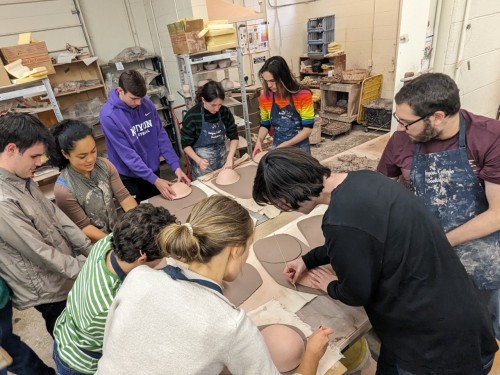
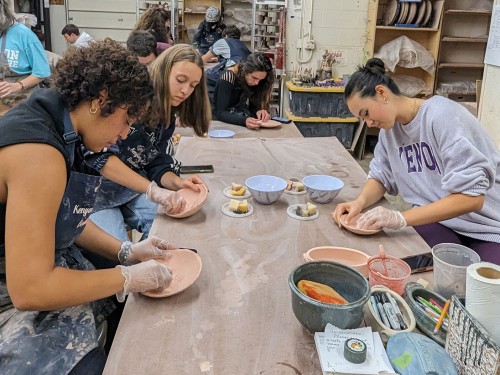
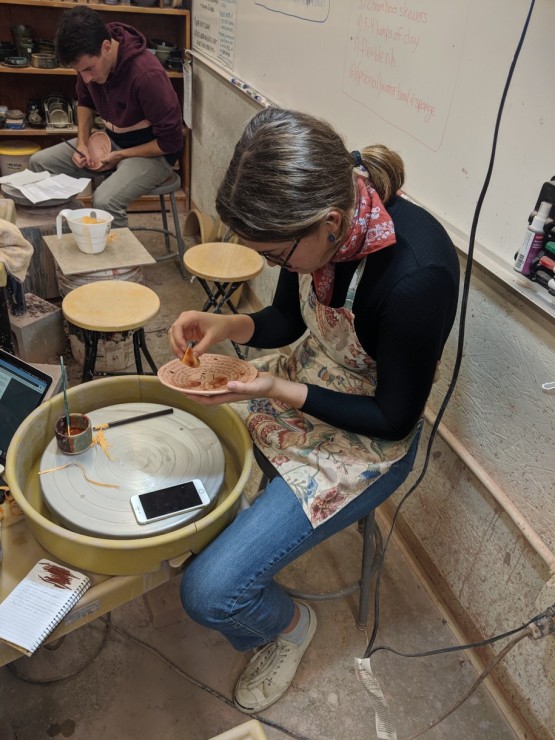
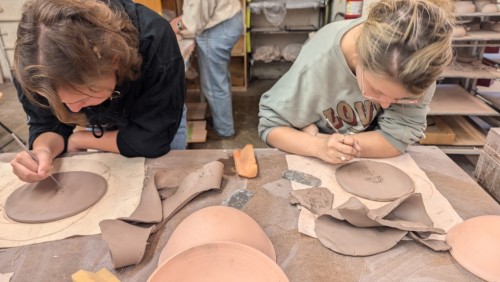
Senior Capstones
Analyzing Jewish Masculinity
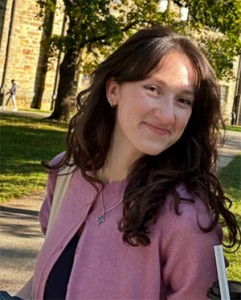
Ellie Greenberg ‘25, a religious studies major, kicked off her religious studies senior honors capstone research with a summer internship at Brandeis University’s Hadassah Institute program. While serving as a research assistant, Greenberg began work on her honors thesis, analyzing Jewish masculinity and American civic religion in prominent podcasters. Greenberg used her research to guest lecture about Jewish masculinity in Professor Dalton’s RLST 165 course, Jew-ish in a Modern World. She also presented her research at two conferences: the Midwest American Academy of Religion and the Indiana University Graduate Student Conference.
Strategies of Jewish Survival
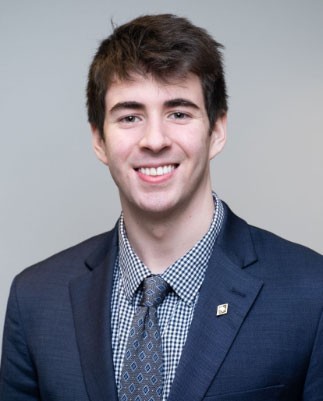
A history major, Peter Haas ’25 won the Robert L. Baker Memorial Prize for his senior capstone, entitled “Strategies of Jewish Survival: Rezső Kasztner’s and Oskar Schindler’s Resistance Through Nazi Collaboration.” The essay examined the unconventional forms of resistance employed to save Jewish lives.
Krista Dalton
